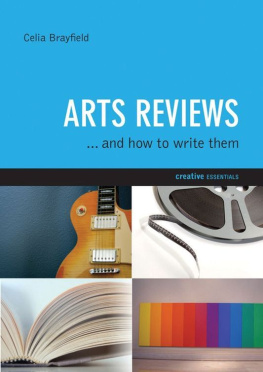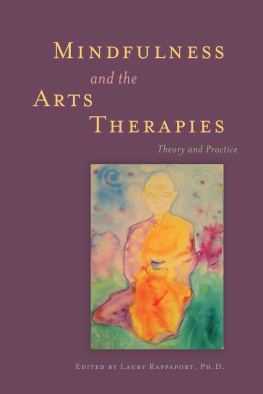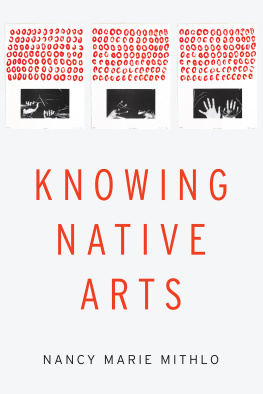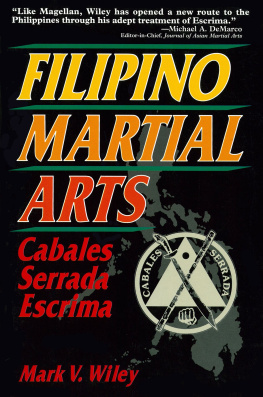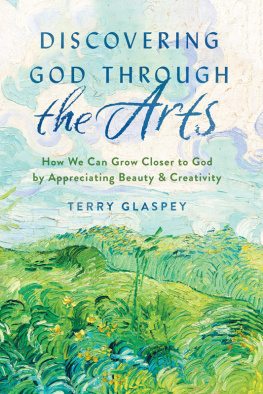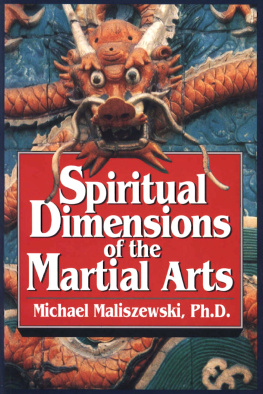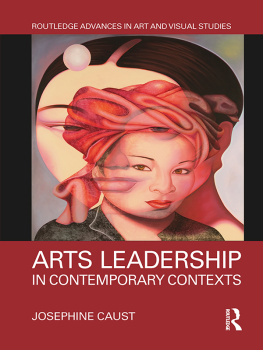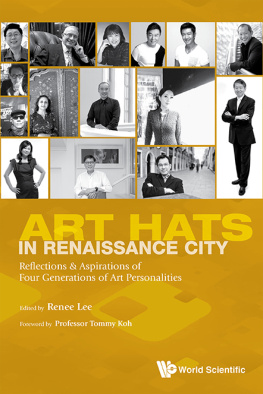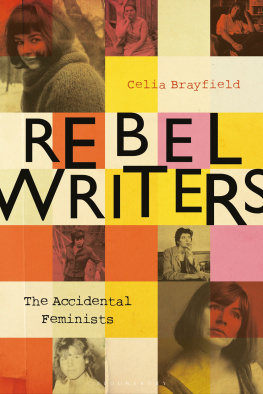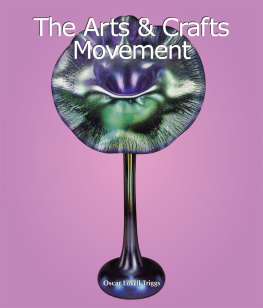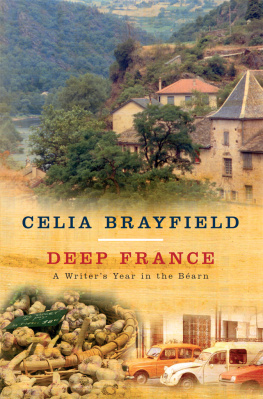Brayfield - Arts Reviews
Here you can read online Brayfield - Arts Reviews full text of the book (entire story) in english for free. Download pdf and epub, get meaning, cover and reviews about this ebook. year: 2010, publisher: Oldcastle Books, genre: Art. Description of the work, (preface) as well as reviews are available. Best literature library LitArk.com created for fans of good reading and offers a wide selection of genres:
Romance novel
Science fiction
Adventure
Detective
Science
History
Home and family
Prose
Art
Politics
Computer
Non-fiction
Religion
Business
Children
Humor
Choose a favorite category and find really read worthwhile books. Enjoy immersion in the world of imagination, feel the emotions of the characters or learn something new for yourself, make an fascinating discovery.
Arts Reviews: summary, description and annotation
We offer to read an annotation, description, summary or preface (depends on what the author of the book "Arts Reviews" wrote himself). If you haven't found the necessary information about the book — write in the comments, we will try to find it.
Arts Reviews — read online for free the complete book (whole text) full work
Below is the text of the book, divided by pages. System saving the place of the last page read, allows you to conveniently read the book "Arts Reviews" online for free, without having to search again every time where you left off. Put a bookmark, and you can go to the page where you finished reading at any time.
Font size:
Interval:
Bookmark:
Extract from Thats Me in the Corner by Andrew Collins, published by Ebury, reprinted by permission of the Random House Group Ltd and the author.
Extract from review by Dirk Bogarde of Gretchen Gerzina book, June 18, 1989, reproduced by permission of the Telegraph Media Group Ltd.
Extract from review by Mark Kermode of Pirates of theCarribbean:Dead Mans Chest in The Observer, July 9, 2006, copyright Guardian News & Media Ltd, reproduced by kind permission.
This book is dedicated to Sir Simon Jenkins, with grateful thanks for his inspiration, his example and for giving me my first job as a reviewer.
and how to write them
Most reviewers wake up every morning and cant believe their luck. Theyre getting paid to do what many of them would actually bribe someone to let them do anyway. They are going to be rewarded for indulging an obsession. Ahead of them is a day which they can devote to the activity that, with the possible exceptions of sex and food, they love best in the entire world. This they will be able to describe as their work. Truly, whoever called being a reviewer the worlds best job was not wrong. The role offers you an irresistible balance of passion, pleasure and lack of responsibility. And you may well get paid for it. Life doesnt get much better.
In this book I will be talking about reviewers rather than critics, although the terms mean almost the same thing. Of course the choice of word is deliberate Im a writer, I choose words as other people choose washing powder or life partners, for their essential qualities. Critic may be the traditional name for the person who is a professional audience for an art, but it sounds a little negative and the baggage that comes with it is heavy and ugly. I am also an artist; people talk about constructive criticism but, to the artist, the stuff in the media is rarely that. Artists do not often experience media criticism as a positive contribution to their work.
Critic is a also narrow word; it doesnt suggest the central role that reviewers can play in championing, advancing, popularising or refining
Here is Sir Tom Stoppard explaining that when he began to write plays they were directly influenced by the Observers drama critic, Kenneth Tynan: Tynan mattered for his youth, his virtuosity in print, his self-assurance, his passion and above all for his self-identification with the world he wrote about. So when I sat down to try to write a play, I was consciously trying to write for him.
Perhaps the most thrilling moments in a reviewers life are the times when it falls to you to be a witness to history. A young soprano appeared in an obscure opera at the Olympia Theater in Athens and one of the critics who heard her, Vangelis Mangliveras, wrote, That new star in the Greek firmament, with a matchless depth of feeling, gave a theatrical interpretation well up to the standard of a tragic actress. With her exceptional voice with its astonishing natural fluency she is one of those God-given talents that one can only marvel at. His judgement was so apt that Maria Callas was known afterwards as The God-Given even by the rivals who hated her.
A great critic, says the music reviewer Norman Lebrecht, is the conscience of his art. Individual critics have left their distinct imprints on our creative life; their confident judgement and their intelligent support can define a great artistic movement and create the consensus that will recognise it. Groups of critics, brought together by the beliefs and values that they share, have deliberately steered their culture in a new direction. Even before that, great critics contributed immeasurably to the cultural life of their times, informing, challenging and stimulating their readers to a better understanding of the arts.
Many artists begin their careers as reviewers. Early in their creative lives, when they have yet to mature as practitioners, they have a passion for their field and often also a clear idea of where it should be going. The most striking example of a creative movement which began as an exercise in criticism is the cinema of Frances New Wave; a handful of iconoclastic youths attacked the timid, traditionalist French films of the 1950s in a new film magazine, Les Cahiers duCinma, and almost instantly became the legendary directors creating a new cinematic style. As a reviewer, a developing artist becomes part of a creative profession, gains an understanding of its dynamics, meets the key players, falls in with like-minded friends and has the opportunity to issue a manifesto in every notice.
Equally, many reviewers dont cross over to the creative side, either by choice or because theyre in the wrong place at the wrong time. As a young film critic, I would have liked nothing better than to become part of the British film industry, but at the time there wasnt one. True, a few movies got made; it was a phenomenon like the desert rivers of the Middle East. After a long, cruel, dry spell there would be a flash flood; people would hail a new British cinematic movement and then, as with a wadi in the desert, the essentials faith or money or tax breaks would dry up, leaving only the name, the erosion and maybe a bleached skeleton to show where there had once been abundance.
You didnt have to be a man to work on this now-you-see-it-now-you-dont enterprise but almost all the writers, directors and technicians were male. Since the work was scarce, they were fiercely protectionist. The real action in movies was not in London, but in Hollywood, Paris, Warsaw or Rome, and I had a depressing sense of being a long way away from it. So when a desperate magazine editor offered me half a page of film reviews every month if Id deliver a spread on television as well, it was a blessing in disguise. The British film industry probably lost the dreamiest production assistant it never had.
Having struck, as I saw it, a downright Faustian bargain and become a television reviewer, I found myself part of a golden age. Better still, few writers of any calibre in the press knew anything or cared less about this Cinderella backwater of the entertainment industry that was the reason that my editor resorted to Mephistophelian manoeuvres. Overnight I became a media authority and in a few months I was headhunted by Fleet Street and spent the next seven years with the brightest, most creative and most exciting screen talents of the time.
It was strange to operate in the no-mans-land between television and newspapers, territory that was heavily mined, full of barbed wire and shell holes, haunted by the ghosts of decent writers who had died under fire. TV was then and currently remains the dominant information medium, with 95% of the population relying on it for news coverage, a fact to which newspapers at that time were responding with dour resentment. Every year the television industry creamed off the top graduates from Oxford and Cambridge, yet the editors for whom I worked dismissed their work as lowbrow mass entertainment, unworthy of their attention and of no interest to our readers. When I thought about this attitude in relation to the significance of the industry, I felt as if my head would burst with the absurdity of it. So I went to war. Stories were my ammunition. I bombarded my editors with reportage, features, profiles and essays. Most were shot down, but gradually the section editors realised that I could deliver something halfway interesting and competently written that would plug the holes in their schedules.
I was working on an evening newspaper that had a classic problem with reader loyalty. Typically, people bought the paper only once or twice a week, on their way home from work, instead of getting it every day as the readers of morning papers tend to do. I knew, as an avid reader of the critics since my teens, that a good review needs to stand alone, meaning that it should be understandable to a reader who hadnt followed any continuing debate around its subject. So I made sure that my work always passed that test, even when I was writing the TV listings.
Font size:
Interval:
Bookmark:
Similar books «Arts Reviews»
Look at similar books to Arts Reviews. We have selected literature similar in name and meaning in the hope of providing readers with more options to find new, interesting, not yet read works.
Discussion, reviews of the book Arts Reviews and just readers' own opinions. Leave your comments, write what you think about the work, its meaning or the main characters. Specify what exactly you liked and what you didn't like, and why you think so.

